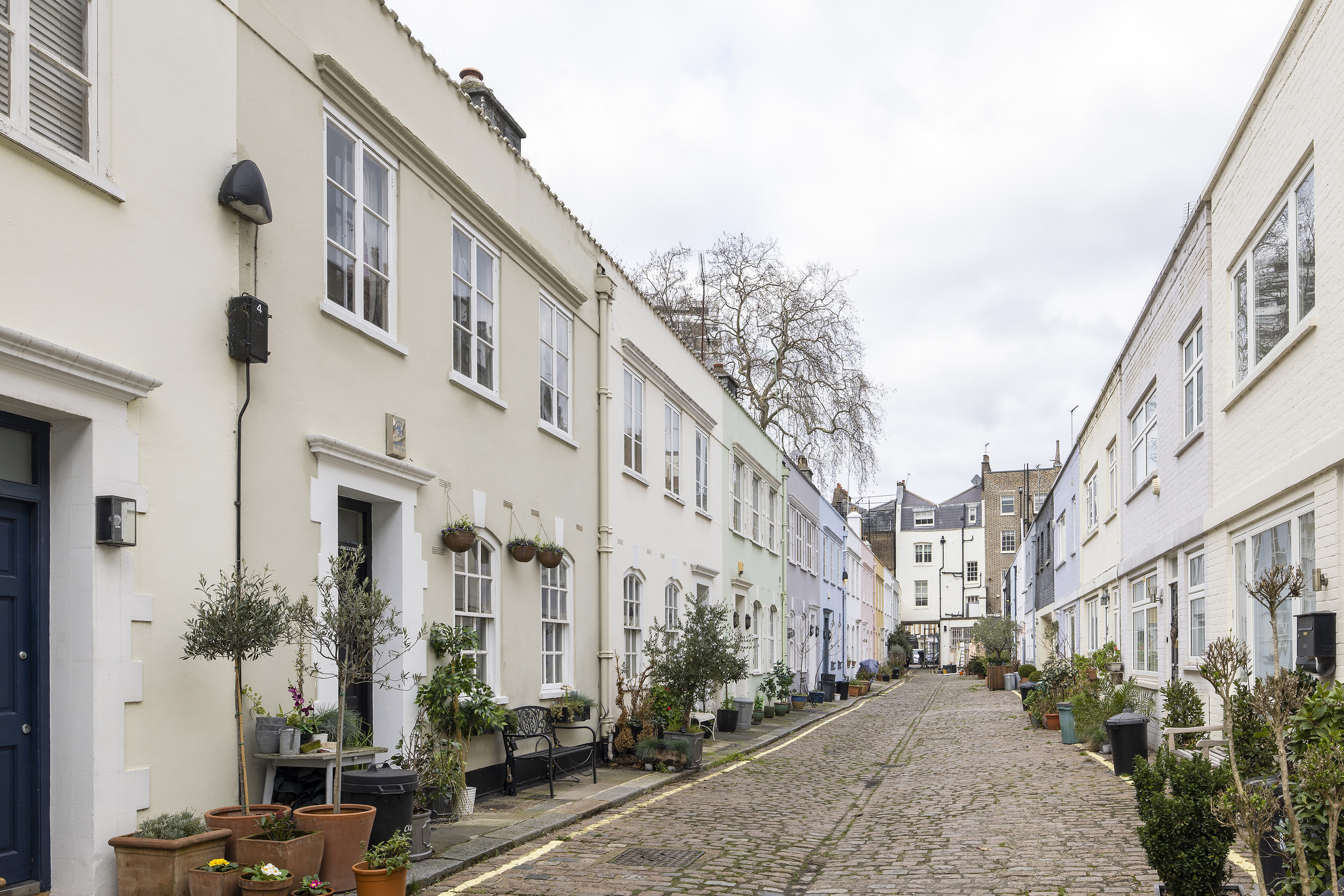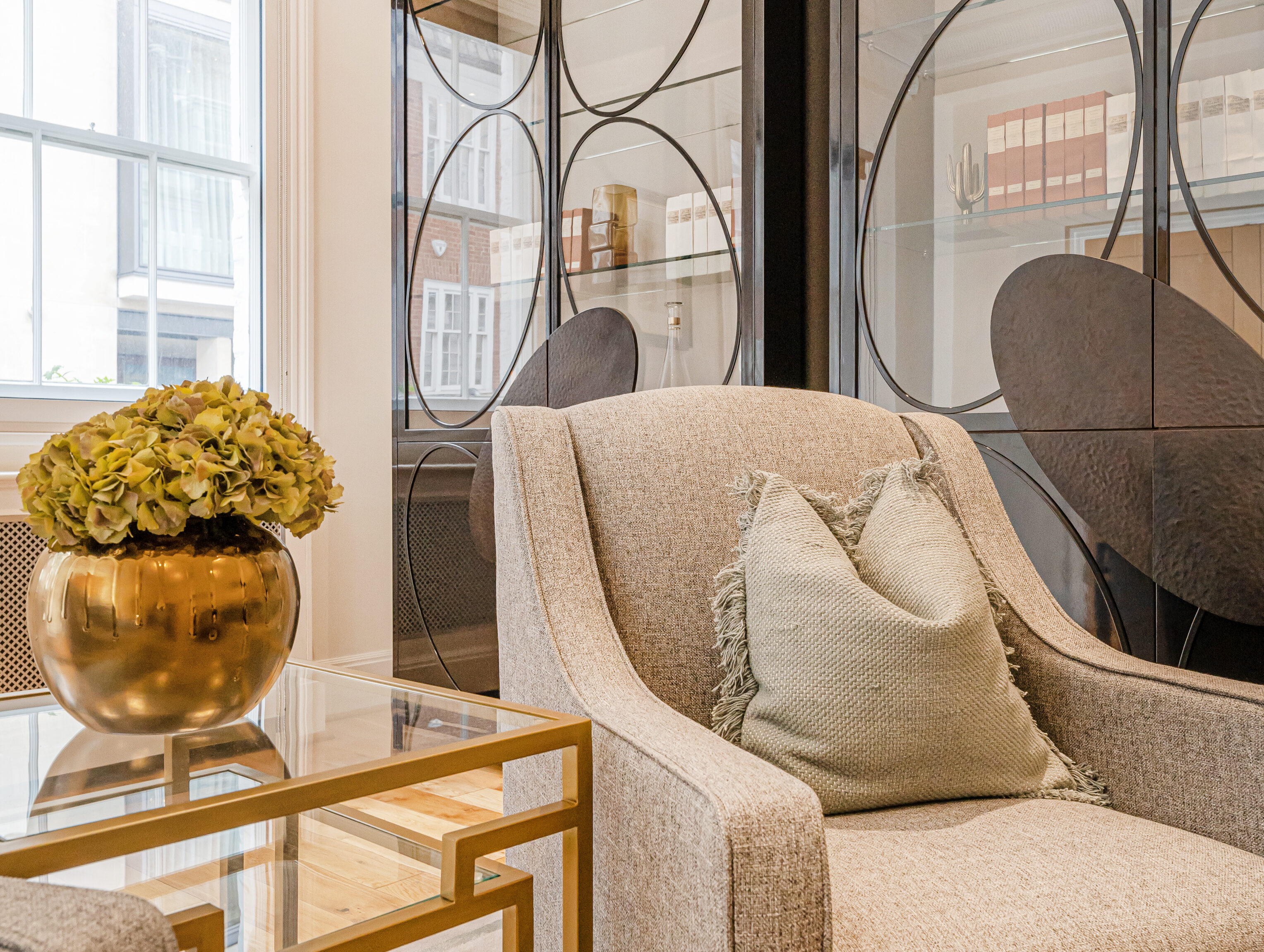Back to the Future & Moving Forward

Striking workers and other widespread woes could feel like we have stepped back into another decade. So why does prime London’s property market suggest it’s not as bad as all that – Zoe Dare Hall Reports

You might be forgiven for feeling like a time-traveller right now. With teachers, train drivers, nurses and even British Museum workers among the millions poised to join picket lines this month, there are echoes of the General Strike of 1926. Or maybe you feel it’s all looking more like the 1970s with inflation running high and food prices rising at their fastest in 50 years. Heavens, John Cleese is even bringing back Fawlty Towers! Who turned back the clocks without us noticing?
It has, in many ways, been a winter of disgruntlement. But just as there are early signs of Spring emerging from the dark days, there is a feeling in the prime property market that it really isn’t as bad as all that. “It’s a tricky market,” comments Billy Harvey, head of sales at Lurot Brand, “but it’s more positive than the headlines suggest. The economy is improving, interest rates are falling. We’re seeing many clients who are saying ‘let’s get on with it’.”
Although the prime London market will be lucky to see any growth this year, double-digit capital growth is forecast over the next five years. Current values look attractive to many overseas buyers –particularly those from the US and other dollar-denominated countries; London has seen a record number of €5m+ sales over the past 12 months. The 600 transactions at that level last year beat even 2013, before stamp duty rises came into being, and post-lockdown 2021.
As eternal optimists, we all start the year with good intentions – hence the hoards who subject themselves to Dry January and Veganuary. Whether it’s optimism, though, or sheer stubbornness, “there is still a gap between vendors’ and buyers’ expectations of price. Vendors are taking time to work out what the market is doing,” says Harvey. But this year began “with offers flying around”, he adds. “One sale that fell through at the end of last year has now gone under offer for nearly £100,000 more. The market is pretty stagnant but we are not seeing any slashing of prices. Asking prices need to be sensible, obviously, but there are no major price drops or renegotiation of prices already agreed.”

The mortgage landscape is easing up too, and fixed rate costs are coming down. But that matters little to most buyers in prime central London, two thirds of whom have no need for finance. Price will always be key to vendors, but buyer profile is becoming a bigger part of the equation now, says Harvey. “Vendors like the security that comes with a cash buyer; they also want to know the reason for buying. A second home that’s only used for a few days a year is not an urgent purchase, so vendors may worry that it’s more likely to fall through.”
Equally, though, someone who can afford a second home in central London could be seen as a less risky bet. They don’t need to buy; they just want to. In the mews market, three-quarters of buyers are London – or UK-based and mainly cash buyers. “Mews buyers aren’t flaky; they are experienced,” says Harvey.
Positive news for mews vendors, too, is that while Notting Hill and South Kensington will always be highly sought- after markets, most buyers of mews properties are not fixated on being in a particular postcode. They often fall within the empty-nest age bracket or, as wealth appears to be in ever younger hands, are a long way from starting a family. In either case, they are not driven by schooling and the need to be in a certain catchment area. “If they can’t find what they want in South Kensington, they will look at Hyde Park instead because it’s the same distance from the park. They fall in love with the look of the house and the street, not necessarily the postcode,” says Harvey. Those with houses in need of some work right now, however, will find it harder to sell. Totally unmodernised properties, where buyers/developers have factored renovation costs into the price, and newlyrenovated houses with no work needed are both popular at present. The sticking point is the middle ground. “People don’t want to spend the money on having to put in a new kitchen while the cost of building work and materials is so high,” says Harvey.

Harvey describes 2023 as “draw breath year”. Good properties are still achieving strong prices, “but if something has an issue or is slightly quirky, it will be penalised on price. Buyers are aware that they need to be sensible, not overstretch and not take on something that may have unforeseen costs,” he says.
One legacy of the Covid era remains, however, and that is the desire to have some home-working space. The pandemic has given us a taste of work-based freedom, and new research by LinkedIn shows that more than a third of UK workers would resign if told to return to the office fulltime. On viewing properties, says Harvey, most buyers will identify where the desk will go – or even better, which room will be their study (or studies; separate workspaces for flexi-working couples are in high demand).
Many mews properties lend themselves to live/work properties, with their easy street access, quiet environment and the charm and character of having big old stable doors and cobbled streets. Lurot Brand is marketing a property in Notting Hill’s Ledbury Mews North, whose two combined apartments contain a residential studio and an office. There is also a garage in Russell Gardens Mews in Kensington with planning permission for conversion into a studio or an office.
It’s all change in the world of work in 2023 – but is it a return to the 1970s or a taste of the future? That’s up to you to decide.
BY ZOE DARE HALL
Property Freelance Journalist of the Year 2021, International Property Journalist of the Year 2021, Lifestyle & Interiors Journalist of the Year 2021 (Property Press Awards)
